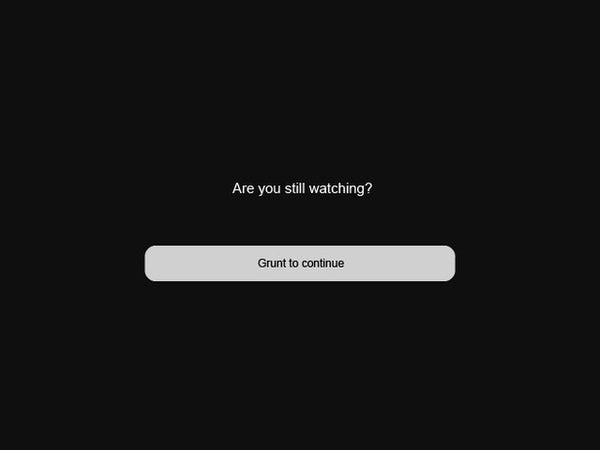Back to Blog
Working Out But Not Losing Weight? Here’s How to Get Past The Weight Loss Plateau
June 15, 2023
The ARENA Training Staff

The Weight Loss Struggle
You've been hitting the gym or your Go ARENA classes regularly, breaking a sweat on the regular and upping the weight like a boss. But, alas, the stubborn scale refuses to budge. We get it – you're frustrated, and you're asking, "Why can't I lose weight even though I'm working out?" The truth is, weight loss isn't as simple as calories in versus calories out. So, let's dive into the factors that could be preventing you from shedding those extra pounds.
Table of Contents
- Rethink the Scale: A Better Way to Measure Progress
- Hormones, the Unsung Heroes (Or Villains)
- Your Ultimate Weight Loss Checklist
- There’s Hope on the Horizon
- Key Takeaways
Rethink the Scale: A Better Way to Measure Progress
First things first, let's talk about the scale. While it can be a useful tool for tracking fat loss, it isn't the be-all and end-all of progress measurement. Fat loss is really your goal, not weight loss. The scale doesn't differentiate between fat, muscle, water, organs, and all the other bits that make up your body. Since muscle weighs more than fat, you might not see a significant change in your weight even if you're losing fat and gaining strength. You might even feel a bit bulkier or heavier if you are early in your fat loss journey, as you gain muscle mass rapidly.
Instead of relying solely on the scale, consider using body fat analysis and visual assessments to track your progress. Body fat analyzers provide a more accurate representation of your body composition, showing changes in your fat and muscle mass. When choosing a body fat analyzer, it's essential to consider factors such as accuracy, ease of use, and compatibility with your preferred fitness tracking apps.
By investing in a reliable body fat analyzer, you can gain a better understanding of your body composition and make more informed decisions about your health and fitness journey. Numbers don’t lie (like we lie to ourselves), so get some better numbers.
Here are three popular and reliable body fat analyzers that you can consider investing in:
Withings Body Comp Wi-Fi Scale
This is the scale, on steroids. It not only measures your weight and body fat but also offers a comprehensive analysis of your body composition, including muscle mass, bone mass, and water percentage. It syncs with the Withings Health Mate app and other apps, allowing you to track your progress over time and set personalized goals.

Omron Body Composition Monitor with Scale
The Omron Body Composition Monitor uses bioelectrical impedance analysis (BIA) to provide detailed information on your body composition, including body fat percentage, skeletal muscle mass, visceral fat, and more. This device features a handheld unit connected to a scale, making it easy to use and providing accurate results. These are commonly found in personal training gyms and are generally pretty accurate.

Tanita InnerScan Pro
Tanita is known for its professional grade body composition monitors, and the consumer series is no exception. This smart scale uses BIA technology to provide a comprehensive analysis of your body composition, including body fat percentage, muscle mass, bone mass, and visceral fat. It also syncs your data with the Tanita Health Planet app to track your progress over time.

In addition, regularly assessing your appearance in the mirror can help you see the physical changes in your body that the scale might not capture. Better yet, snap a mirror selfie every now and then first thing in the morning while you are dehydrated. Write down when you took them. Chances are, you have been looking better and better, but can’t see the forest from the trees right now.
A word of caution here: you may be tempted to ask your partner, friends, or family if you have been making progress. We strongly suggest that you do not. Often times, our inner circles also lack perspective due to the frequency at which you see them. Also, often times they are not as supportive as you might think about your progress. More on that later.
You have probably run into Body Mass Index (BMI) throughout your life as a measure of body composition. While it's a widely-used measurement tool, BMI doesn't account for muscle mass or differences in body type, which can lead to inaccurate categorization of individuals with higher muscle content or larger bone structures as overweight or obese. Our training staff highly recommends that you throw this out metric entirely in assessing for tracking your progress.
Hormones, the Unsung Heroes (or Villains)
Before we start pointing fingers, it’s helpful to get a grip on the key hormones that dictate fat loss. Ghrelin, leptin, insulin, cortisol, thyroid… these may sound like the names of aliens from a sci-fi flick, but they're actually the hormones that play a significant role in weight regulation. Understanding their role in your body will help you navigate the maze of information online and in dietary books, while also giving you a sense of how your habits affect your biochemistry. Here is a crash course on a few of the major players:
Ghrelin
Also known as the "hunger hormone," ghrelin is produced in the stomach and signals your brain that it's time to eat. When you're trying to lose weight, high levels of ghrelin can make it more challenging to resist cravings and control portion sizes.
Leptin
Produced by your fat cells, leptin is the "satiety hormone" that tells your brain when you've had enough to eat. When you have more body fat, leptin levels increase, which should reduce appetite. However, some individuals develop leptin resistance, meaning their brain doesn't respond to the hormone's signals, leading to overeating and difficulty losing weight.
Insulin
This hormone, produced by the pancreas, regulates blood sugar levels by allowing glucose to enter your cells for energy. A diet high in sugar and processed carbohydrates causes blood sugar spikes. In turn, that causes insulin resistance, where your cells don't respond to insulin as they should. This can lead to weight gain and difficulties in shedding pounds.
Glucagon
This hormone works in opposition to insulin, stimulating the breakdown of gylcogen stored throughout the body into glucose for energy and supressing the production of fat. Maintaining a balance between insulin and glucagon is essential for effective fat loss. Whe you exercise, glucagon goes to work to provide the short term glucose needed for powering your workout.
Cortisol
Known as the "stress hormone," cortisol is released in response to stress ors like physical, emotional, or mental strain. Chronically elevated cortisol levels can lead to weight gain, particularly around the belly area, and make it harder to lose weight.
Thyroid hormones (T3 and T4)
Produced by the thyroid gland, these hormones regulate metabolism and energy expenditure. Imbalances in thyroid hormones, such as hypothyroidism, can slow down your metabolism, making it difficult to lose weight despite your efforts.
Growth hormone
Produced by the pituitary gland, growth hormone helps stimulate cell growth and regeneration, muscle growth, and fat breakdown. Adequate sleep and regular exercise can help increase growth hormone levels, supporting fat loss efforts.
Adiponectin
This hormone is secreted by fat cells and helps regulate glucose levels and fatty acid breakdown. Higher adiponectin levels are associated with improved insulin sensitivity and lower body fat. Weight loss and and exercise themselves stimulate adiponectin release, as well as fasting and consuming fats.
Norepinephrine
This hormone and neurotransmitter play a role in the "fight or flight" response and stimulate lipolysis, the process of breaking down fat for energy. Norepinephrine increases metabolic rate and helps mobilize fat stores for energy use.
Understanding the relationships between these hormones is crucial for successful weight loss. For instance, high cortisol levels can interfere with insulin function, leading to insulin resistance and weight gain. Similarly, inadequate sleep can disrupt the balance between ghrelin and leptin, causing you to feel hungrier and consume more calories. For many women, Hashimoto’s thyroiditis is common as they age or have children, causing them to hold on to fat among other symptoms such as thinning hair and dry skin.
We advise you consult with your doctor and get labs done on these hormones. If there is anything medically out of whack, that could be the cause of your endless weight loss plateau. The good news is that most hormonal conditions are imminently treatable with medication, supplementation, and dietary adjustments.
Your Ultimate Weight Loss Checklist
So, how do you conquer the weight loss plateau? Establish behaviors that lead to good hormonal health and a caloric defecit. Here's a checklist to help you get back on track:

Sleep: Consistency is Key
If you're not getting enough quality sleep, you're doing your body a disservice. A lack of sleep can lead to hormonal imbalances, wreaking havoc on your weight loss goals. Sleep deprivation can increase ghrelin production, making you feel hungrier and more prone to overeating, and decrease leptin levels, reducing the hormone's ability to signal fullness, which means you don’t have a good idea of when to stop eating. Poor sleep can elevate cortisol levels, causing increased fat storage, particularly in the abdominal area - where you probably spend most of the time staring at yourself in the mirror.
Your body's cells also become less responsive to insulin, causing the pancreas to produce more insulin in an attempt to maintain proper blood sugar levels. This increased insulin production can lead to insulin resistance, where the cells fail to respond effectively to insulin signals, resulting in high blood sugar levels that wreak havoc on the rest of your hormones.
Aim for 7-9 hours of sleep each night, and maintain a consistent sleep schedule, even on weekends. If you're struggling with sleep, consider trying supplements like melatonin or magnesium, or explore cognitive behavioral therapy to improve your sleep habits.
Many sleep issues can be traced back to alcohol use, smoking, anxiety, stress, caffeine intake, shift work, binge watching TV, medication use, and even working out too late. Make a list of everything you are doing that could be detrimental to your sleep quality and consistency, and set an action plan in place one by one.

Diet: Embrace Whole, Unprocessed Foods
We're throwing calorie counting out the window (yes, you read that right). Instead, focus on whole, unprocessed foods that are high in protein, fat, and fiber. These nutrients help keep you feeling full and satisfied, making it easier to resist that 3 pm refrigerator rendezvous. Think lean meats, fish, eggs, nuts, seeds, fruits, and vegetables. The goal is to nourish your body without obsessing over every calorie – because let's face it, nobody's got time for that. Under the hood, what is happening is you are keeping your blood sugar levels even throughout the day, preventing hormones from going out of balance and subsequent rebound effects that mess with appetite and fat metabolism.
Once you’ve got your food groups on lock, here are some tips to help optimize your diet, try these strategies:
- Experiment with different levels of fat to find the right balance for your body. Some individuals may require more healthy fats to feel satisfied, while others might prefer a more moderate approach. Listen to your body's signals and adjust accordingly.
- On big lifting days, eat more protein and fibrous carbohydrates. On recovery or light workout days, go easy on the carbohydrates and stick to protein and fat.
- Observe if there are foods that cause inflammation or make you feel out of whack. Food sensitivities can contribute to inflammation and downstream hormonal imbalances. Pay attention to how your body reacts to different foods and eliminate or reduce those that trigger adverse reactions.
- Consider having a little natural sweet in the evening, like honey. Consuming a small amount of natural sugar can help maintain liver glycogen levels, preventing them from depleting overnight, jacking up cortisol levels too early, and disrupting sleep.
Protein, fat, and fiber play a crucial role in regulating the hormones discussed previously. The name of the game is keeping blood sugar levels even so you don’t throw your hunger, satiety, and stress levels into extremes all the time. This is why they are the main focus.
Protein: A diet rich in protein can help reduce ghrelin levels, decreasing hunger and making it easier to stick to your weight loss plan. Moreover, protein stimulates the release of peptide YY, another hormone that promotes feelings of fullness. Protein should be your main focus in making food choices.
Fat: Consuming healthy fats, such as those found in nuts, seeds, avocados, and oily fish, can help regulate blood sugar levels and improve insulin sensitivity. Additionally, fat aids in the absorption of fat-soluble vitamins, which can support overall hormone production and balance.
Fiber: High-fiber foods can help control blood sugar levels by slowing down the absorption of glucose, thus reducing insulin spikes. Fiber also promotes the release of satiety hormones like GLP-1 and PYY, helping you feel fuller for longer and curbing appetite.

This will help lose fat without the need to read the calorie label
Supplements: A Helping Hand
Sometimes, a little extra help is needed. Consider incorporating supplements like fish oil, vitamin D, and probiotics into your routine to support your body's weight loss efforts. Just remember, supplements should complement your diet and exercise, not replace them. So don't go popping pills like candy – moderation is key. Our training staff highly recommends avoiding supplements in place of natural, whole foods. A protein shake after a big lift is just fine, but as much as you can try to eat real, unprocessed, solid food. Liquid nutrition clears the gut quickly, spikes blood sugar levels, and leaves you feeling hungry again soon after.

Not a replacement for salmon
Stress Management: Work-Life Balance and Fun
Stress can be a major saboteur when it comes to weight loss. High cortisol levels can lead to weight gain, particularly around the belly area (hello, muffin top). Establish boundaries at work and make time for leisure activities. Try incorporating sports, games, and other fun activities into your life to help relieve stress. Remember, a little fun never hurt anyone. Unless it's dodgeball.
As much as you can, getting outside and soak up some sunshine. More often than not, advice on fat loss is about training and nutrition, but you cannot overlook living in your body as a critical ingredient to seeing improvements in its composition. Not only is it great for your mood, but it can also help regulate your sleep and boost hormones involved in fat loss. Try to get at least 15-30 minutes of sunlight exposure daily. If you live in an area with limited sunlight, consider investing in a light therapy box to help mimic the sun's benefits. Or shamelessly throw open the window shades and go shirtless for your ARENA workout.

There's Hope on the Horizon
Weight loss plateaus are as common as the common cold. But don't let this temporary setback get you down. By focusing on sleep, diet, stress management, getting some sunshine, and reevaluating your progress measurement tools, you can conquer that weight loss plateau and reach your goals.
Remember, you're not alone in this journey – we're here to support you every step of the way. So take a deep breath, put on your superhero cape, and get ready to tackle those pesky pounds once and for all. If you are an ARENA Member, reach out to your Concierge and ask to get connected to a Trainer. They can help you debug your daily routine and habits.
Key Takeaways:
- Weight loss plateaus are common and can be broken by changing behaviors.
- Hormonal imbalances caused by poor diet, sleep, and stress all impact weight loss.
- Prioritize sleep consistency, try supplements or cognitive behavioral therapy if needed.
- Focus on whole, unprocessed foods that are high in protein, fat, and fiber. Avoid calorie counting.
- Manage stress by setting boundaries at work, engaging in sports and games, and getting regular sunlight exposure.
- Switch away from the scale to body fat analysis tools and visual assessment.
- Understand the functions and relationships of the major hormones involved in weight loss.


